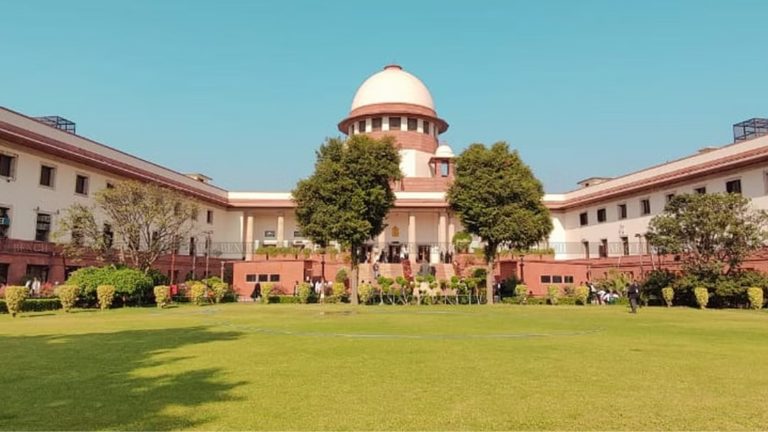The Supreme Court on Tuesday (March 12) observed that the workers employed to perform perennial/permanent nature of work couldn’t be treated as contract workers under the Contract Labour (Regulation & Abolition) Act, 1970 to deny them the benefit of regularization of a job.
The Bench Comprising Justices P.S. Narasimha and Sandeep Mehta opined that the permanent or perennial nature of work couldn’t be performed by a contract worker and has to be undertaken by the regular/permanent worker.
Taking note of the fact that the work of removing spillages in the railway siding performed by the non-regularized workers is regular and perennial, the Judgment authored by Justice P.S. Narasimha affirmed the decision of the Industrial Tribunal and High Court, to regularize the appointment of non-regularized workers who were treated as contractual workers and denied benefits of regularization while undertaking permanent/perennial nature of work.
The matter relates to the non-regularization of 13 workers out of a total of 32 workers, employed by Mahanadi Coalfields/appellant, a subsidiary of Coal India Ltd. who were treated as contract workers while performing the perennial nature of work.
Also read: Compliance Guidelines for FinTechs
Out of 32 workers employed by the company, only 19 workers were regularized and 13 workers were denied regularization on the ground that the work done by them is casual, and not continuous/perennial, making them ineligible to be regularized under the Contract Labour (Regulation & Abolition) Act, 1970.
After a representation was made to the appellant on behalf of the Workers Union to consider the regularization of the 13 workers, a settlement was arrived but it only considered the regularization of 19 workers and denied regularization to 13 workers.
After an intervention of the Central Government, the dispute was referred to the Central Industrial Disputes Tribunal. After consideration, the tribunal concluded that the nature of the duties performed by the 13 workmen is the same as that of 19 workers, therefore they are entitled to back wages and regularization of jobs as provided to the other 19 workers. The Tribunal held that the work of removing spillages in the railway siding, below the bunker and operation of chutes (in the bunker) performed by 13 workers are regular and perennial in nature.
The decision of the Tribunal was upheld by the High Court, and the plea against the tribunal’s decision was dismissed. Following which, Mahanadi Coalfields approached the Supreme Court.
Before the Supreme Court, it was contended by the appellant that the tribunal has no power to grant permanent status to the workers, as the settlement arrived between the Appellant and the Respondent/Workers Union is binding on all parties.
However, rejecting such contention the Judgment authored by Justice PS Narasimha upheld the Central Industrial Tribunal’s decision to grant permanent status to the 13 workers and directed them to provide the back wages with effect from the decision of the tribunal.
“It is proved that the remaining workers stand on the same footing as the regularized employees, and they were wrongly not made part of the settlement. This is established by the Tribunal, by examining the nature of work undertaken by the first set of 19 workmen and that of the other 13 workmen.”, the court observed.
“The appellant has failed to establish any distinction between the two sets of workers. The Tribunal was, therefore, justified in answering the reference and returning the finding that they hold the same status as the regularized employees.”, the court added.
With respect to back wages, the Supreme Court held that the workmen will be entitled to back wages as observed by the Industrial Tribunal, however, modified the tribunal’s order to the extent that the calculation of the backwages would be done from the date of the decision of the tribunal’s order and not from the date of employment.
Based on the above premise, the appeal was dismissed.
Counsels For Petitioner(s) Mr. Aman Lekhi, Sr. Adv. Mr. Soumyajit Pani, Adv. Mr. Aishwary Bajpai, Adv. Mr. Siddharth Jain, AOR
Counsels For Respondent(s) Mr. Ashok Kumar Panda, Sr. Adv. Mr. Tejaswi Kumar Pradhan, AOR Mr. Mohan Prasad Gupta, Adv. Mr. Manoranjan Paikaray, Adv. Mr. Shashwat Panda, Adv.
Case Title: MAHANADI COALFIELDS LTD. VERSUS BRAJRAJNAGAR COAL MINES WORKERS’ UNION
Citation : 2024 LiveLaw (SC) 230
Stay connected with us on social media platforms for instant updates click here to join our LinkedIn, Twitter & Facebook



































